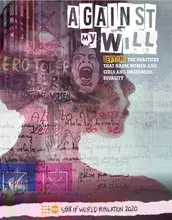Gaborone, BOTSWANA- In an effort to eradicate gender-based violence (GBV), the United Nations Population Fund (UNFPA) organised a one day orientation session for 30 print and electronic media professionals in Gaborone, which aimed at improving skills and knowledge of journalists.
In her opening remarks, UNFPA Botswana’s Head of Office Ms. Mareledi Segotso, expressed serious concerns about the increasing number of GBV cases in Botswana and urged journalists to do their utmost to not only raise awareness about the problem, but to also make sure that their reporting takes a survivor-centric approach. She further highlighted that journalists have a powerful role to play in addressing gender-based violence as they are in a position to enhance public perceptions through strengthened reporting standards, as well as facilitate advocacy with decision makers and communities to ensure protection of women and girls.
She commended the media fraternity for reporting incidents of Gender Based Violence during the period of the coronavirus lockdown, saying through their reporting they unearthed and showed a surge in cases. Botswana Police registered a total of 531 domestic violence cases between 1 April and 30 June 2020, with 181 of the cases being of rape and 79 cases of defilement. A total of 58 pregnancies of school going girls was also reported for the same period.
Participants said the training was timely, seeing that incidences of GBV have been on the rise. Bokani King, a journalist from Yarona FM radio station said she was very happy to have been part of the training as she gained a lot of knowledge which will help in her future reporting.
“What I learned today will have a great impact on how I report from now onwards. I realised that I have not particularly been using a survivor-centred approach when reporting on GBV and I now realise that my past reporting might have harmed those I was trying to help”
Wame Mhlanga from Strides magazine described the orientation as an eye-opening experience for her, considering she just cut her teeth as a journalist who has not yet had any exposure to information on gender-based violence and the sensitivities of reporting on it.
“I feel more empowered as a journalist now that I have been introduced to this important and very sensitive subject. I pledge to intensify reporting on GBV issues, taking into consideration principles of ethical reporting,”
Ephraim Banda, editor at Stride Magazine pledged to avail space on both their print and online platforms to articles on amplifying awareness and prevention of gender based violence.
The orientation covered topics such as the use of social media, interviewing skills, use of images, introduction to GBV, national, regional and global overview, media and gender stereotypes, journalism ethics for reporting on GBV and sharing of experiences by journalists among others.
Each participant made a pledge to become change agents in the fight against GBV in Botswana.
In alignment with the 2019 Nairobi ICPD25 Summit global commitments for GBV and harmful practices against women and girls, the Government of Botswana committed to reduce Gender Based Violence among women from 37% to 20% and from 21% to 10% for men through effective implementation of the National Strategy Towards Ending GBV by 2030.
One of UNFPA’s three transformative results is to have Zero gender based violence and other harmful practices by 2030.



